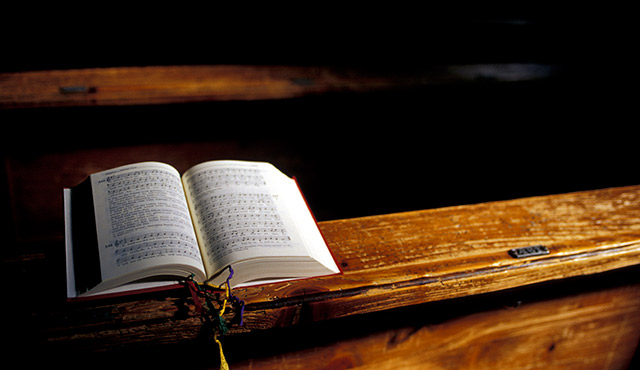Whether they are referred to as “cultural Catholics” or by the older term “lapsed Catholics,” they are those individuals who were raised Catholic but who have stopped actively participating in the faith. For some, this means no longer attending Mass or doing so only rarely. For others, it means leaving the Church entirely.
The Center for Applied Research in the Apostolate at Georgetown University estimates that there are more than 30 million adult cultural Catholics in the United States. A recent survey conducted by Benedictine University for the Diocese of Springfield, Ill., found four major reasons for these individuals to have left the Church—dissatisfaction with Church doctrine (such as prohibitions on birth control, ordination of women, and civil marriage after divorce), loss of interest in the faith, recent Church scandals, or feeling unwelcome or judged by the Church.
The last of these can be applied to Christy Brink of Stanton, a cradle Catholic who stopped attending Mass several years ago. Pregnant at the time of her marriage—a civil marriage to the father of her child in 1981—she was committed, with the support of her Lutheran husband, to raising their children in the Catholic faith and seeing to it that they received the sacraments. Trying to arrange the baptism of her first son, though, only resulted in what she felt was a slap in the face.
Brink recalls that the parish priest she dealt with refused to baptize the child, whom he deemed would not be properly raised in the faith since his mother had conceived before marriage and had been married outside of the Church. Through the intercession of her aunt, Brink’s son was baptized at another parish in Orange County. He, along with his younger sister and brother, received the sacraments, attended religious instruction, and accompanied their mother to Mass every week during their childhood.
As her children matured to the point where practice of the faith became their own responsibility, Brink’s interest in participating in the Catholic Church waned to the point where she simply stopped attending Mass. The sting of that rebuke over her son’s baptism was as fresh and painful as the day it occurred.
A story like Brink’s and the numbers coming from Georgetown beg the question of what the Catholic Church is doing to address and remedy the situation of cultural Catholics.
Sister Jeanne Fallon, an associate director of the Loyola Institute of Spirituality in Orange, and a spiritual counselor there, says when people come to her, her main effort is not to “find a way to bring them back, not to evangelize, but to try to meet them wherever they are in their life with God.” Although she thinks some may find it “a little shocking,” she wonders if it’s “possible to apologize for our failures as a Catholic community. Could we have an honest conversation without being judgmental?” Sister Jeanne recently conducted a retreat in Palos Verdes and she saw a nearby Catholic church, St. John Fisher, with a sign describing it as “A Community for All.” “I was so pleased,” she says.
Sr. Jeanne feels the Church needs to present an attitude of being welcoming rather than being judgmental or condemning. The Church needs to offer a friendly hand. “I felt such joy that anyone could step in those doors and be welcomed,” she says of St. John Fisher, “whatever their station, gay or lesbian, divorced and remarried, because they are all God’s children. I fear that some people don’t consider us a welcoming Church.”
Earlier this month, Pope Francis was in the news with statements regarding the Church’s relationship with divorced Catholics who remarry, urging pastors to avoid treating those couples as if they were excommunicated. The pope also was reported as expressing concern about the children of these Catholics, “if we keep them far from the community life as if they were excommunicated.” Those sentiments were music to the ears of Sister Jeanne, especially the concern about potential harm to children. “I am thrilled with that,” she says. “I am thrilled with what I hear.”
So where does talk of apologies, nonjudgmental inclusion in the Catholic community, and the pope’s interest in the concerns of divorced Catholics leave someone like Christy Brink? Is a bridge starting to span the gap between the Catholic Church and non-participating Catholics? Is there a common ground where both sides can meet and build the kind of community that meets all needs?
When asked what, if anything, could bring her back to the Catholic Church, Brink tells the story of going to the church of a longtime friend. “Her church was called New Apostolic and I can tell you when you walked in there was such a warmness,” Christy says. “I realize the church was small and that was the reason, but it was still a good feeling.”

